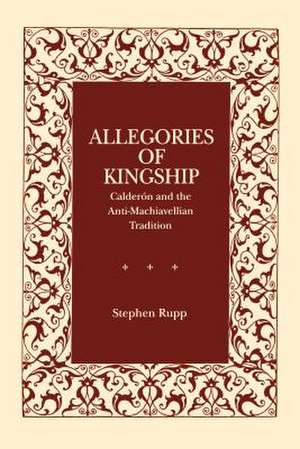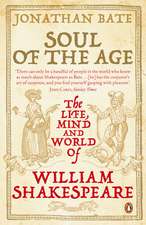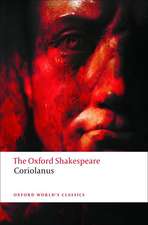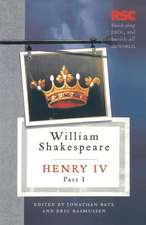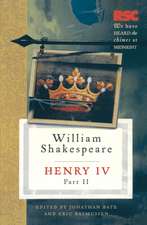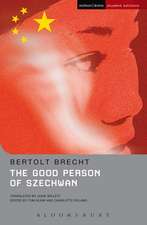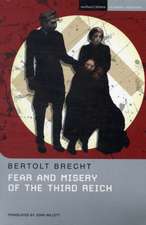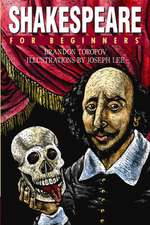Allegories of Kingship – Calderón and the Anti–Machiavellian Tradition: Studies in Romance Literatures
Autor Stephen Ruppen Limba Engleză Paperback – 14 sep 1995
Rupp's argument proceeds from abstract principles of political theory to particular institutions and events at the Hapsburg court. Discussion of two comedias (La vida es sueno and La cisma de Inglaterra) and five autos (La vida es sueno, A Dios por razon de Estado, El maestrazgo del Toison, El nuevo palacio del Retiro, and El lirio y la azucena) demonstrates Calderon's assimilation of true reason of state to providence, his attitudes concerning the conciliar system and the regime of the royal favorite or valido, and his allegorical treatment of significant state occasions."
Preț: 277.95 lei
Nou
Puncte Express: 417
Preț estimativ în valută:
53.18€ • 55.53$ • 43.92£
53.18€ • 55.53$ • 43.92£
Carte tipărită la comandă
Livrare economică 15-29 aprilie
Preluare comenzi: 021 569.72.76
Specificații
ISBN-13: 9780271026671
ISBN-10: 0271026677
Pagini: 200
Dimensiuni: 152 x 229 x 14 mm
Greutate: 0.3 kg
Editura: Penn State University
Seria Studies in Romance Literatures
ISBN-10: 0271026677
Pagini: 200
Dimensiuni: 152 x 229 x 14 mm
Greutate: 0.3 kg
Editura: Penn State University
Seria Studies in Romance Literatures
Textul de pe ultima copertă
This study examines issues in politics and political theory in selected works of Pedro Calderon de la Barca (1600-1681), the major dramatist of the middle and later decades of the seventeenth century in Spain. By analyzing secular dramas (comedias) and religious plays (autos sacramentales), Stephen Rupp demonstrates Calderon's awareness of the ideas and institutions of power in Hapsburg Spain and explores the terms of his intervention in the long debate over principles of Christian statecraft. Through references to Rivadeneira, Saavedra Fajardo, and Quevedo, Rupp describes the anti-Machiavellian theory of kingship that informs Calderon's political theater. Rupp's argument proceeds from abstract principles of political theory to particular institutions and events at the Hapsburg court. Discussion of two comedias (La vida es sueno and La cisma de Inglaterra) and five autos (La vida es sueno, A Dios por razon de Estado, El maestrazgo del Toison, El nuevo palacio del Retiro, and El lirio y la azucena) demonstrates Calderon's assimilation of true reason of state to providence, his attitudes concerning the conciliar system and the regime of the royal favorite or valido, and his allegorical treatment of significant state occasions.
